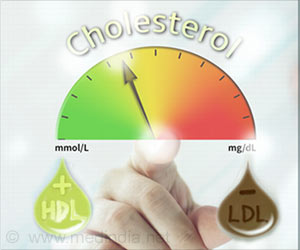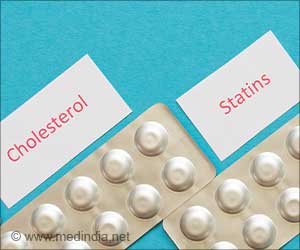Combining plant stanol esters and beta-glucan reduced levels of LDL-cholesterol by almost ten per cent.
Combining plant stanol esters and beta-glucan reduced levels of LDL-cholesterol by almost ten per cent, says a new study from the Netherlands.
But whether this could offer the possibility of formulating an additional weapon in the armoury against elevated cholesterol levels remains to be seen since the reductions were not as much as expected, possibly due to detrimental interactions between the ingredients.High cholesterol levels, hypercholesterolaemia, have a long association with many diseases, particularly cardiovascular disease (CVD), the cause of almost 50 per cent of deaths in Europe, and reported to cost the EU economy an estimated €169bn ($202bn) per year.
Phytosterols and stanols, cholesterol-like molecules derived from plants, are increasingly well known to consumers due to their scientifically proven ability to reduce cholesterol levels. As consumer awareness has increased, the number of products containing plant sterols or plant stanols and their esters has increased.
Indeed, a recent Frost and Sullivan report valued the European market at €146m ($184.6m) in 2005, and estimates this to reach €312.5m ($395.2m) in 2012, an increase of 114 per cent.
However, a recent study from France reported that, despite the widely advertised benefits of using phytosterol-enriched margarines, only 15 per cent of the study population of people at high risk of heart disease were consuming the margarines, with only five per cent consumed the recommended daily amount.
Researchers from Maastricht University report that combining plant stanol esters with another ingredient receiving increasing attention, beta-glucan - a non-starch polysaccharide found in oats and barley previously reported to decrease LDL-C levels - may reduce cholesterol levels more than a beta-glucan alone.
Advertisement
The controlled, three-period crossover study recruited 40 men and women with mild hypercholesterolaemia and assigned them to randomly receive different types of muesli twice a day for four weeks. The muesli was formulated to provide five grams of wheat fibre (control), five grams of oat beta-glucan, or five grams of oat beta-glucan plus 1.5 grams of plant stanols.
Advertisement
In this case the researchers note that the combination of five grams of beta-glucan and 1.5 grams of stanol esters reduced LDL-cholesterol levels by 9.6 per cent, significantly more than the 5.0 per cent from the beta-glucan-only muesli, relative to the control.
On the other hand, not changes in serum HDL-cholesterol or triacylglycerol concentrations were observed.
"The combined effects of beta-glucan and plant stanol esters on LDL cholesterol concentrations have not been systematically examined," wrote Theuwissen. "We found that addition of plant stanol esters to the beta-glucan-enriched muesli significantly lowered LDL cholesterol concentrations by 4.4 per cent.
"This effect was smaller than the estimated mean change of –8.5 per cent for daily intakes of 1.5-1.9 g of sterols or stanols. Thus, our findings suggest that the water-soluble fibre beta-glucan reduces the efficacy of plant stanols."
The researchers speculated that the addition of the beta-glucan increased the viscosity of the muesli inside the intestine. This would have an knock-on effect by inhibiting stanol transport into the enterocytes (a type of cell lining the intestinal walls).
"As a result, not only serum concentrations, but also the cholesterol-lowering efficacy of plant stanols, may have been decreased," they said.
"Whether this is indeed true and due to the effect of beta-glucan or the food matrix needs further investigation," they concluded.
Source-Bio-Bio Technology
SRM










